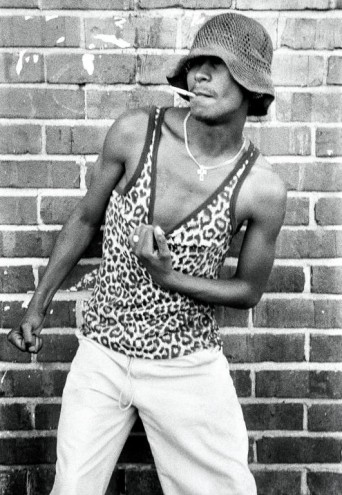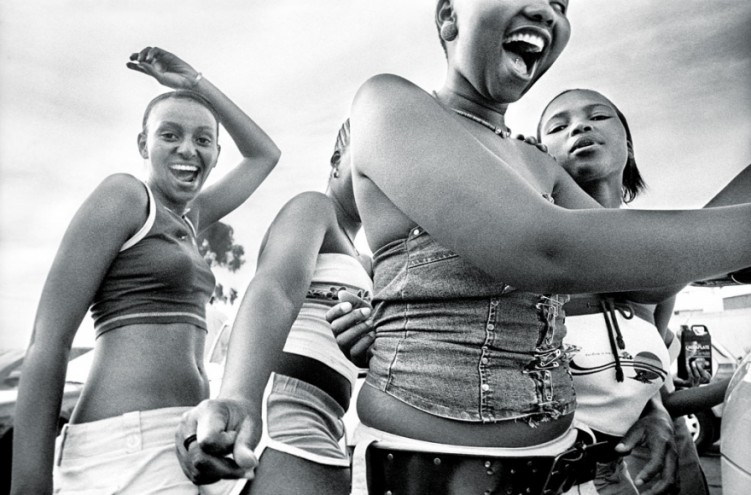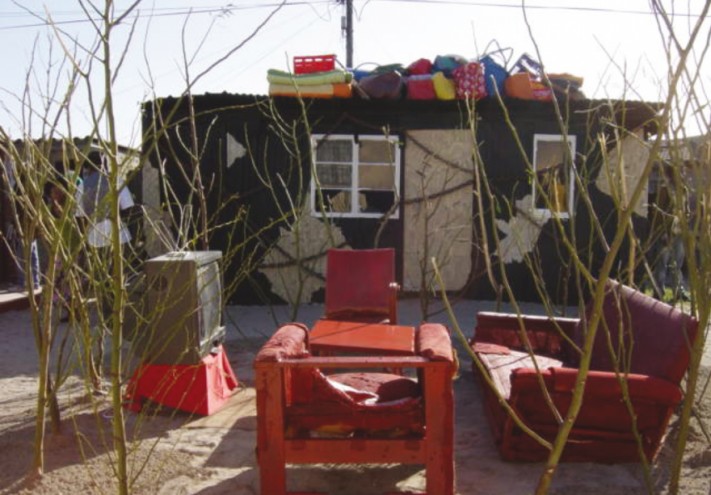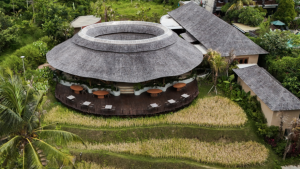Kasi bling
A tiny figure in a skimpy skirt dances enthusiastically in the middle of the busy street in Gugulethu township. The drunken crowd is cheering her on while the tune of DJ Siyanda's Iwewe, a popular house song, is blaring in the background from the car speakers. This is a true township experience.
The place is called Kwa-Mzoli, a popular night spot among the youth. Judging by the mixture of languages here, Mzoli's popularity goes beyond Gugs. Even big shot celebrities from Johannesburg don't miss the opportunity to visit the place whenever they are in Cape Town, as do international tourists.
Besides the revelry, Mzoli also serves as the fashion catwalk. Here the guys show off their dress sense. Pointy formal shoes, tight-fitting jeans and bright (pink) shirts are the in thing. Aspiring TV personality, Mcebisi Maraqana, tells me that he doesn't need the luxury things because his six-pack gets him all the girls. "You should come here during the afternoons because it's full then. There's lots of girls," he says.
Mzoli is divided into two businesses that are adjacent to one another. First is the famous meat house where patrons buy their eats. A variety of meat is available and affordable; and, unlike in other places I've been, here they braai the meat for you. This is not a place for vegetarians. The second business is an open-air restaurant, which is my favourite.
From here, one gets a good view of the party outside. Typically, girls show off their dance moves in the middle of the street while the guys flaunt their economic status by revving their luxury cars' engines, fishing for attention. Some even go as far as spinning their car in a circle and leaving tire marks on the road. But who cares, everybody is here to have fun. - Lindile Sifile
The Beautiful Struggle
The photos are from The Beautiful Struggle, a collaboration between Swedish photographer Per Englund and township dweller Mlamli Figlan. The book tells the story of how a strong, traditional African culture engages with global youth culture as a means of escaping poverty and apathy. Offering rare insights into the lives and dreams of South African youths living in Gugulethu, Cape Town, the book asserts that tomorrow's global subcultures are born in the big cities of the Third World.
Shebeen no has-been
Now almost two years old, 2007 was a year of building for Gugulective. Not only did it see three exhibitions announce that this artist collective is the hippest new thing on the block, but it continued their long-term community rejuvenation prerogative.
The Gugulective hail from Gugulethu, Langa and Khayelitsha. Primarily our work engages issues related to these communities. The lack of exposure for artists from these communities in the media renders artistic and intellectual voices futile. Nonetheless, at the end of the day an artist wants to hear the views and opinions of those who are close to the issues he or she is dealing with, but the lack of knowledge about artists in our own communities borders on ignorance.
When it comes to attracting an audience in our communities we are of the opinion that the overwhelming dearth of resources has stifled the cultivation of a taste for art. Resources and taste have reached a point where they work in tandem in providing a challenge for us as a collective. Last year was a good foundation year for us, we do not wish to stop.
Largely we have relied on our tenacity and hard work. We epitomise the phrase "to build something out of nothing". We have worked from a shebeen (Ta Mlamli's in Gugulethu) to build a creative haven that will function as a platform for recognising artists from the township and provide a comfortable environment in which people from different backgrounds can interact.
Most people do not understand why we work from a shebeen. The answer to that question is simple, we want to re-build and re-establish the dignity of the shebeen. As communities we have forgotten the role shebeens played in cultivating intellectuals and socially conscious individuals. Ta Mlamli's Place has given us the freedom to re-cultivate the shebeen as the intellectual haven that it was. - Gugulective










